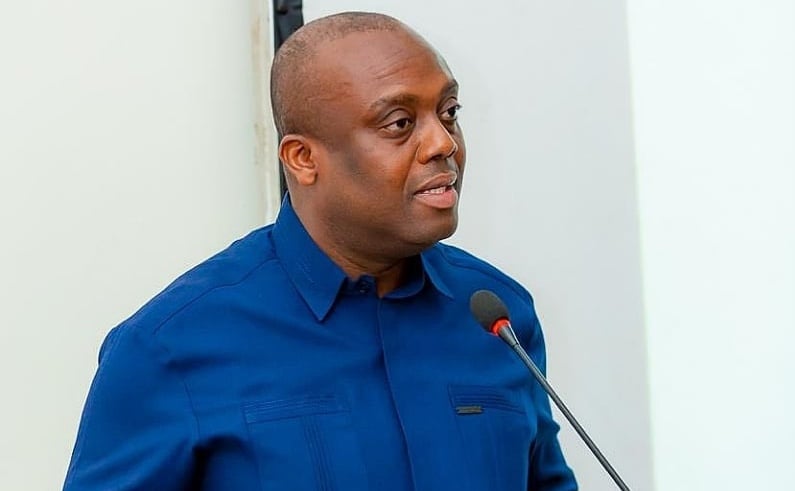Ghana is on the brink of a critical evaluation of its anti-money laundering and counter-terrorism financing (AML/CFT) framework, and the stakes are high. The country faces a potential grey-listing by the Financial Action Task Force (FATF), an intergovernmental organization that sets global standards for combating money laundering and terrorist financing, if it fails to demonstrate adequate measures to prevent illicit financial flows. This looming assessment has prompted the Ghanaian government to prioritize reforms, particularly in the gold sector, which has become a focal point of concern due to its vulnerability to illegal activities.
The importance of the gold sector to Ghana’s economy cannot be overstated. It represents a significant portion of the nation’s exports and contributes substantially to its GDP. However, this economic cornerstone is marred by challenges, including illegal mining, commonly referred to as “galamsey,” and large-scale gold smuggling. These illicit activities not only deprive the country of much-needed revenue but also tarnish its international reputation and pose a threat to global financial integrity. The scale of the problem is alarming, with reports indicating billions of dollars’ worth of gold smuggled out of the country in recent years. This illicit trade undermines legitimate economic activity, fuels corruption, and potentially finances criminal networks, further emphasizing the urgency of the reforms.
The government’s commitment to addressing these issues is evident in its pledge to strengthen gold industry reforms ahead of the upcoming mutual evaluation by the Intergovernmental Action Group against Money Laundering in West Africa (GIABA), a FATF-style regional body. This evaluation will scrutinize Ghana’s AML/CFT framework, assessing its effectiveness in combating money laundering and terrorist financing. A negative outcome, such as being grey-listed, could have severe consequences for Ghana, including increased scrutiny by international financial institutions, difficulty accessing international capital markets, and reputational damage that could deter foreign investment.
Recognizing the multi-faceted nature of the challenge, the government is advocating for a collaborative approach. The Deputy Minister for Finance, speaking on behalf of the Minister, stressed the need for a united effort involving all stakeholders, including financial institutions, regulatory bodies, and law enforcement agencies. This call for collective action highlights the understanding that combating money laundering and illicit financial flows requires a coordinated and comprehensive strategy. Each stakeholder plays a crucial role, from financial institutions implementing robust customer due diligence measures to law enforcement agencies investigating and prosecuting financial crimes. The success of the reforms hinges on the effectiveness of this collaborative effort.
The government has outlined a joint action plan to guide the reform process and ensure that the dialogue translates into concrete actions. This plan likely encompasses a range of measures, including strengthening regulations related to gold trading, enhancing the capacity of relevant institutions to detect and prevent money laundering, and improving international cooperation to track and disrupt illicit gold flows. The Financial Intelligence Centre (FIC), which plays a central role in combating money laundering, is being commended for its leadership in conducting a national risk assessment. This assessment helps identify vulnerabilities and prioritize areas for reform, paving the way for a more targeted and effective approach to strengthening the AML/CFT framework.
International support is also playing a crucial role in Ghana’s efforts to enhance its AML/CFT regime. The UK government, through its Gold Programme, is providing technical assistance and capacity building to support Ghana’s preparations for the GIABA assessment. This international collaboration underscores the global nature of the fight against money laundering and the importance of partnerships in addressing this complex challenge. The UK’s support, along with the contributions of other international partners, is instrumental in bolstering Ghana’s capacity to implement effective reforms and meet international standards. The upcoming GIABA mutual evaluation will be a critical test of Ghana’s progress in strengthening its AML/CFT framework. The outcome of this assessment will have significant implications for the country’s economic future and its standing in the international community. The government’s commitment to reform, coupled with the collaborative efforts of various stakeholders and the support of international partners, provides a foundation for success. However, sustained and concerted action is essential to ensure that Ghana effectively addresses the challenges posed by money laundering and illicit financial flows, particularly within the gold sector. This will not only protect domestic revenue and preserve livelihoods but also strengthen Ghana’s international reputation as a responsible gold hub.


